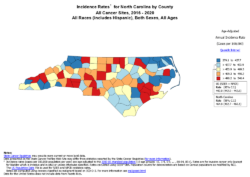Toxic Baby Food Lawsuit
The food your baby ingests is crucial to their health, growth, and development. You purchase the very best baby food you can, perhaps thinking that the more expensive the food, the more nutritious it is for your baby.

But some of the most popular baby food brands may be contaminated with toxic, heavy metals that can actually endanger your child’s health. Numerous lawsuits against baby food manufacturers are now pending, alleging that these toxic metals have caused children to develop autism and other disorders.
Congressional Study Shows Some Baby Food Contaminated
The U.S. House of Representatives Committee on Economic and Consumer Policy released a significant report in February 2021. This report showed that baby foods distributed under brand names such as Gerber and Earth’s Best had unsafe levels of toxic heavy metals.
Some of the metals identified in contaminated baby food include mercury, cadmium, and arsenic, which can be harmful if consumed by a healthy adult and are even more dangerous to young, vulnerable babies. These substances are known to cause concerning side effects:
- Arsenic consumption in early childhood is linked to cognitive development delays and early death
- Cadmium is considered to be a carcinogen and can lead to diabetes and kidney damage
- Mercury exposure can have negative effects on a child’s nervous system and organs
Consuming or being exposed to even a small amount of these toxic metals over time can cause serious and permanent consequences. These consequences can impact your child’s schooling and career options.
Lawsuits Filed in Response to U.S. House Subcommittee’s Report
Since the release of the committee’s report, numerous lawsuits have been filed against baby food manufacturers in federal courts across the country. Some of the manufacturers most commonly named as defendants in these suits include Happy Baby Organics, Gerber, Hain Celestial, and Sprout Foods.
The plaintiffs in these suits are parents who claim that the presence of toxic heavy metals in the baby food they fed their children led to the development of autism, attention deficit disorder (ADHD), and other neurological disorders.
These suits claim that baby food manufacturers should be liable for damages because they did not adequately warn consumers about the presence of these heavy metals in their baby food products.
Court filings suggest that some baby food manufacturers are fighting these lawsuits by claiming that reliable, scientific data does not support the plaintiffs’ claims.
Another defense being raised by manufacturers is that the Food and Drug Administration has previously determined their food to be safe and has the authority to regulate the level of toxic metals in food.
Legal Rights of Parents Who Purchased Tainted Toxic Baby Food
If you fed your child any tainted baby food — unaware that the food contained harmful arsenic, mercury, or cadmium — and your child was later diagnosed with autism, ADD, ADHD, or another neurological condition, you may have legal rights. These could include the right to compensation through a toxic baby food lawsuit.
Financial damages may be available to compensate you and your family for:
- Medical and therapeutic expenses for your child
- Ongoing treatment needs and special education needs your child might require
- Lost wages you experience from having to attend medical appointments
- Lost future earnings your child could have expected in adulthood
- Emotional anguish and mental pain and suffering you and your family experience
Retaining a law firm’s services can be immensely helpful in securing compensation, especially if the firm’s attorneys have experience in handling mass tort actions, class action lawsuits, or other complicated litigation.
You should seek out a firm with the resources available to handle your case, as these claims can be time-intensive and involve considerable investigation and preparation.
If you are not certain whether you have a claim for compensation, complete our online form to have your case evaluated.




